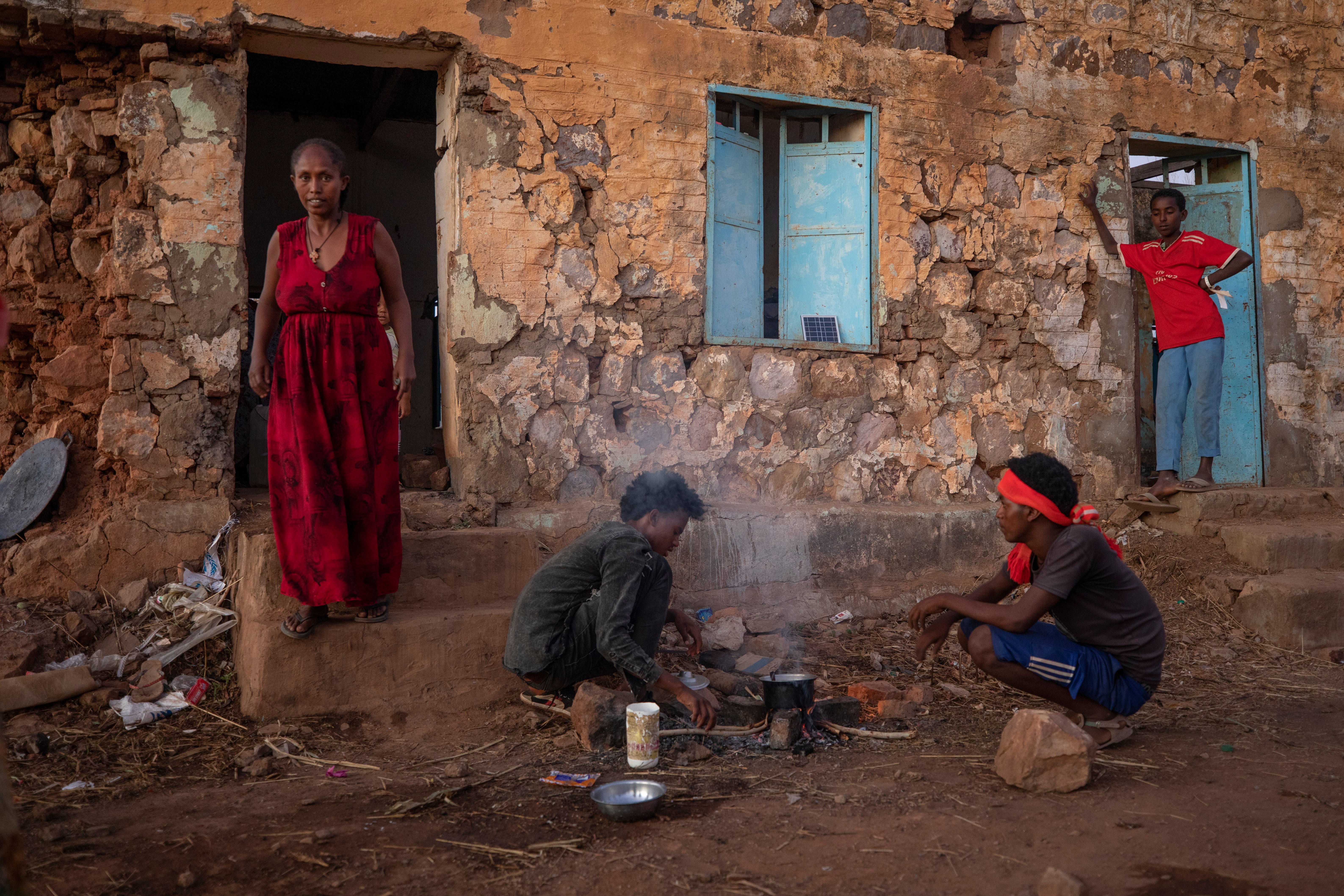Ethiopia rejects independent probes into Tigray conflict
Ethiopia’s government is rejecting calls for independent investigations into the deadly conflict in its Tigray region, saying it “doesn’t need a baby-sitter.”

Your support helps us to tell the story
From reproductive rights to climate change to Big Tech, The Independent is on the ground when the story is developing. Whether it's investigating the financials of Elon Musk's pro-Trump PAC or producing our latest documentary, 'The A Word', which shines a light on the American women fighting for reproductive rights, we know how important it is to parse out the facts from the messaging.
At such a critical moment in US history, we need reporters on the ground. Your donation allows us to keep sending journalists to speak to both sides of the story.
The Independent is trusted by Americans across the entire political spectrum. And unlike many other quality news outlets, we choose not to lock Americans out of our reporting and analysis with paywalls. We believe quality journalism should be available to everyone, paid for by those who can afford it.
Your support makes all the difference.Ethiopia’s government is rejecting calls for independent investigations into the deadly conflict in its Tigray region, saying it “doesn’t need a baby-sitter.”
The declaration comes amid international calls for more transparency into the month-long fighting between Ethiopian forces and those of the fugitive Tigray regional government that is thought to have killed thousands, including civilians. At least one large-scale massacre has been documented, and others are feared.
Senior government official Redwan Hussein told reporters on Tuesday evening that Ethiopia will invite others for assistance only if it feels that “it failed to investigate.” To assume the government can’t carry out such probes “is belittling the government,” he said.
Frustration is growing as the northern Tigray region remains largely cut off from the outside world, with food and medicines desperately needed by the population of 6 million — some 1 million of them now thought to be displaced.
The lack of transparency, as most communications and transport links remain severed, has complicated efforts to verify the warring side’s claims.
It also hurts efforts to understand the extent of atrocities that have been committed since Prime Minister Abiy Ahmed on Nov. 4 announced that fighting had begun with the TPLF, which dominated Ethiopia’s government and military for nearly three decades before he came to power and sidelined it.
Each government now regards the other as illegal, as the TPLF objects to the postponement of national elections until next year because of the COVID-19 pandemic and sees Abiy’s mandate as expired.
Ethiopia’s government has pushed back against what it calls outside “interference,” from efforts at dialogue to delivering aid, drawing on its history as the rare African country never colonized, a source of deep national pride.
The government has made it clear it wants to manage aid delivery, and on Tuesday it said its forces had shot at and detained U.N. staffers who allegedly broke through checkpoints while trying to reach areas where “they were not supposed to go.”
Sporadic shooting remains in Tigray and humanitarian assistance must be escorted by defense forces, Redwan said.
The United Nations, alarmed, said it is “engaging at the highest level with the federal government to express our concerns” more than a week after it and the government signed a deal to allow humanitarian access.
The deal, crucially, allows aid only in areas under federal government control. While Ethiopia’s government says the fighting has stopped, the leaders of the fugitive Tigray People’s Liberation Front have asserted that the conflict continues.
With growing allegations of massacres and attacks on refugee camps inside Tigray, the U.N. human rights office has not responded to a question about whether it has begun investigating possible war crimes.
Meanwhile, the need for aid is being called critical. The Tigray capital, Mekele, a city of a half-million people, is “basically today without medical care," the director-general of the International Committee for the Red Cross, Robert Mardini, told reporters on Tuesday.
The city’s Ayder Referral Hospital has run out of supplies, including fuel to power generators, he said.
“Doctors and nurses have been forced to make horrible life and death decisions,” Mardini said. “They suspended intensive care services and are really struggling to take care like delivering babies or providing dialysis treatment.”
A joint ICRC-Ethiopian Red Cross convoy with supplies for hundreds of wounded people is ready to go to Mekele, pending approval, he said. It would be the first international convoy to reach the city since the fighting began.
While the risk of insecurity remains in the Tigray capital, there is no active fighting, Mardini said.
Overall, he said, “People in Tigray have been cut off from services for nearly a month. They have had no phone, no Internet, no electricity and no fuel. Cash is running out. This of course adds to the tension.”